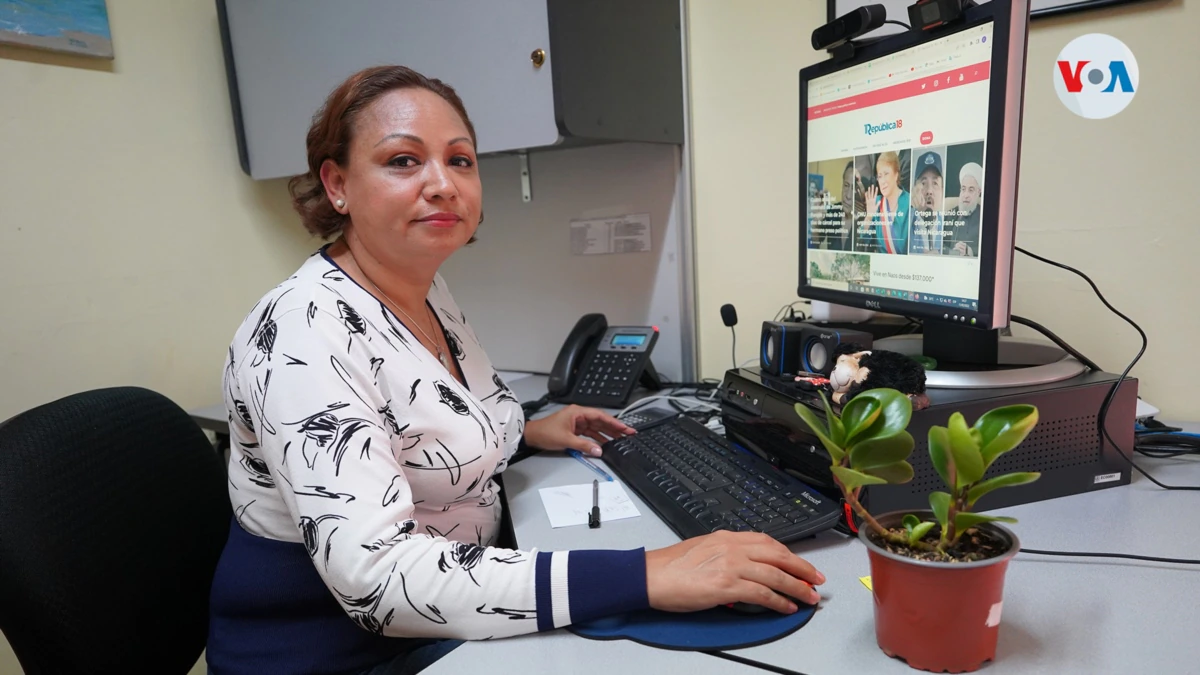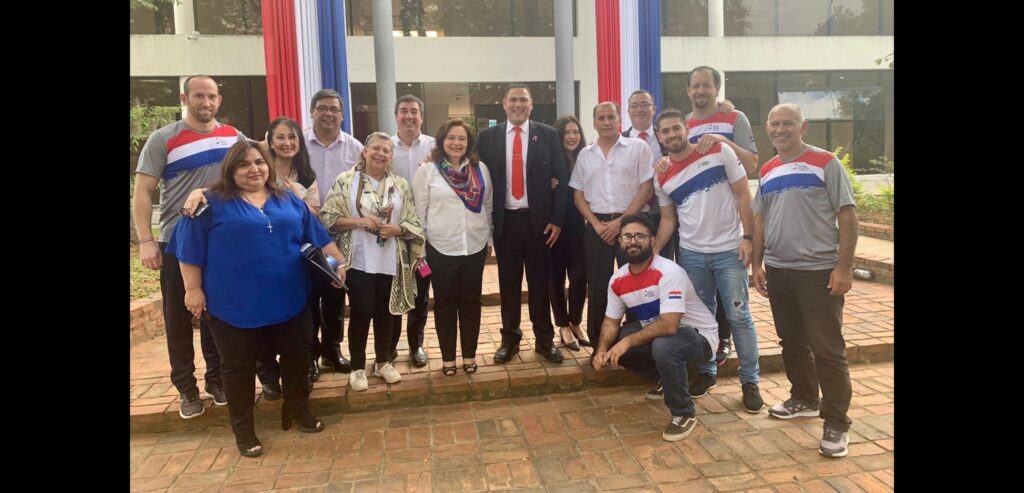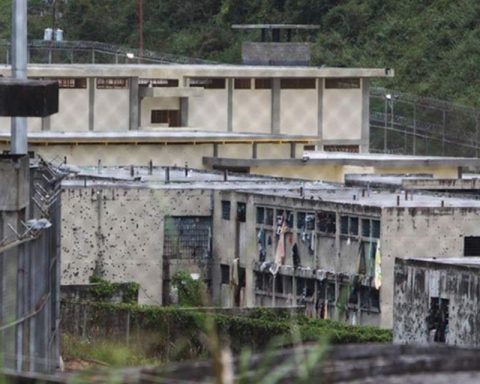Nicaraguan journalist Maryórit Guevara founded the digital media the magnifying glass in 2019 as a way to continue exercising his profession when he went into exile in Spain.
But she quickly understood the need to continue reporting on the situation of women in Nicaragua, which is why her media outlet became not only the first, but so far the only one with a gender perspective.
At that time dozens of other reporters left the country to avoid being imprisoned for covering the protests against President Daniel Ortega, as happened the journalist Lucia Pineda Ubau, captured in December 2018, along with the director of 100%NewsMiguel Mora.
Guevara decided not to abandon his profession and, like other journalists, founded his own medium. His decision was revolutionary, given that in Nicaragua, communication companies have historically been under the control of men.
the magnifying glassdirected by Guevara, covers everything from the social impact caused by the massive closure of NGOs that supported women, ordered by the Ortega government, to the situation of political prisoners.
“We are the protagonists, the voices, there is the life of women and the demands for their rights that have claimed power worldwide,” says Guevara to the VOA.
The journalist points out that the work they do is done “not with a vision of women’s problems”, but rather they try to portray their reality” and how, due to gender, they suffer greater inequality.
“If you check our website or social networks, it is one of the prides we have, a lot of women that you don’t see in all the newspapers. Most of the images and photos that are in the media are of men, with power in politics, in the economic, in the social, being leaders. But in the magnifying glass we have sources where the protagonists are women”.
In Nicaragua, at least seven women founded media outlets as a result of the sociopolitical crisis, according to journalist Martha Irene Sánchez, director of the digital media Republic 18.
Sánchez, who is in exile in Costa Rica, mentions that there are “great challenges” faced by women in charge of digital media.
And it is that assuming this challenge has repercussions such as stigmatization campaigns against women in the midst of the “repressive escalation that the regime has initiated against journalists.”
“It is not the same way that male colleagues are exposed, with respect to how they do it with us as women. They criticize us for how you exercise motherhood or how you have relationships, that’s where the regime and its supporters grab to attack us, ”he mentions.
Abigail Hernandez, founder of the digital medium Gallery News and member of the Nicaraguan organization Independent Journalists and Communicators (PCIN), agrees separately with the reporter Irene Sánchez.
In fact, the PCIN organization in a report released during the last quarter of 2022, shows that more than 37% of the complaints documented by the observatory were filed by women.
“In the first three months of this year, the number of complaints we had in 2021 was reached,” laments Hernández, who points out that there is an increase in terms of attacks on women. “These results are because it is proof of the work we have done,” she says.
Jennifer Ortiz is the director of Nicaragua Investigatesanother media outlet in Nicaragua that emerged as a result of the 2018 crisis. Ortiz began doing journalism denouncing the crisis in Managua, but little by little he has been expanding the agenda with national and economic issues.
Recently denounced alleged attacks by a financial entity against your website after a report on Nicaragua Investigates.
“This is unfortunate because the media not only have to fight with censorship from the Daniel Ortega regime, but also against large corporations that feel affected when one does not publish content that favors them,” Ortiz said in a public complaint.
It’s something new?
This emergence of women in front of the media has occurred for several reasons. Journalist Abigail Hernández, from PCIN, considers that although women have always played an important role in the media, this was not very visible.
“There is no recognition of women’s work, there is talk of workplace abuse and harassment in the newsrooms. That is why women look for other job options in an attempt to recognize ourselves as subjects of opinion”, adds Hernández.
Hernandez, founder of News Gallery emphasizes that current challenges “is to become businesswomen, assume what this entails and train ourselves much more.”
In the same way, he mentions that they have the challenge of acquiring economic funds because, in his opinion, “it is not the same support that men receive.”
“If you look at women’s media outlets, they are much smaller because you don’t have the same resources or funds,” says Hernández.
She also stated that many women “do not separate ourselves from the care of our homes, while men have more advantages because it allows them to have a greater commitment to their business projects,” she concludes.
Connect with the Voice of America! Subscribe to our channel Youtube and turn on notifications, or follow us on social media: Facebook, Twitter and Instagram


















